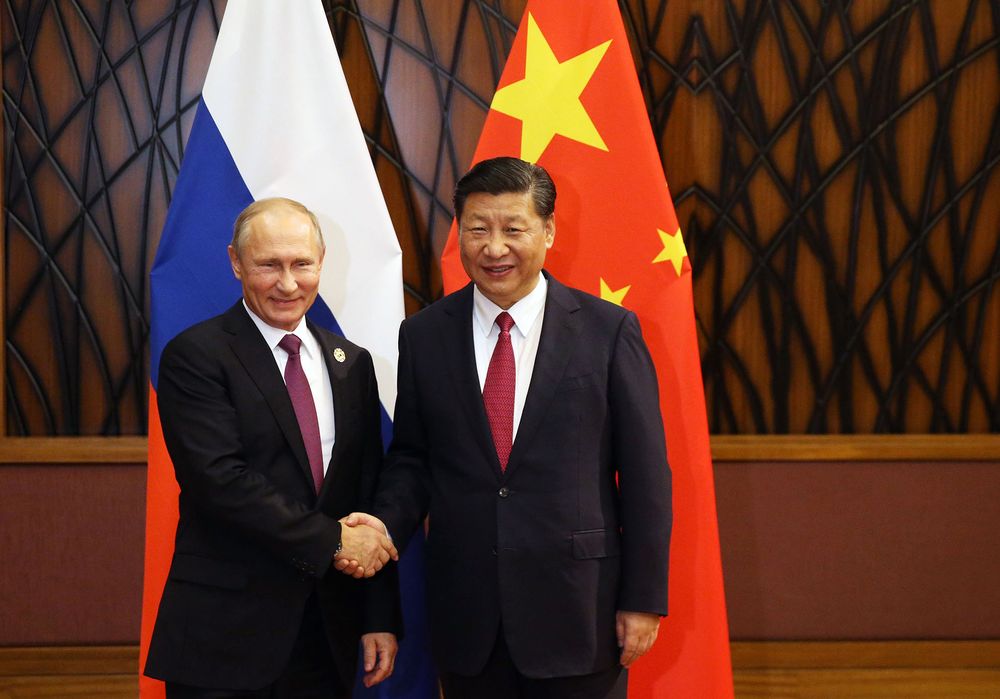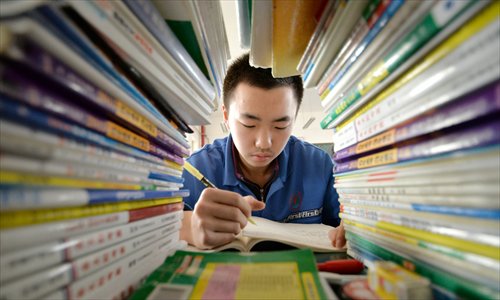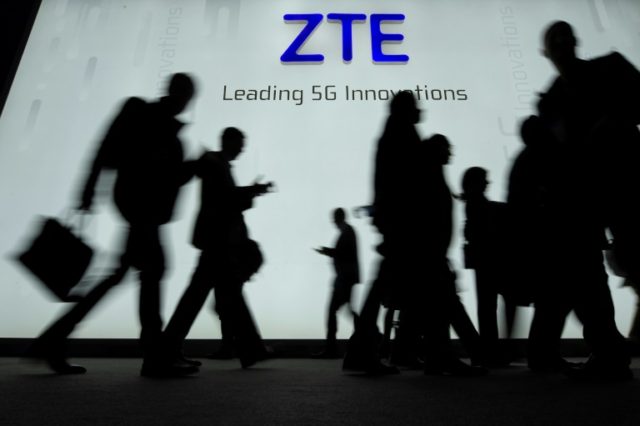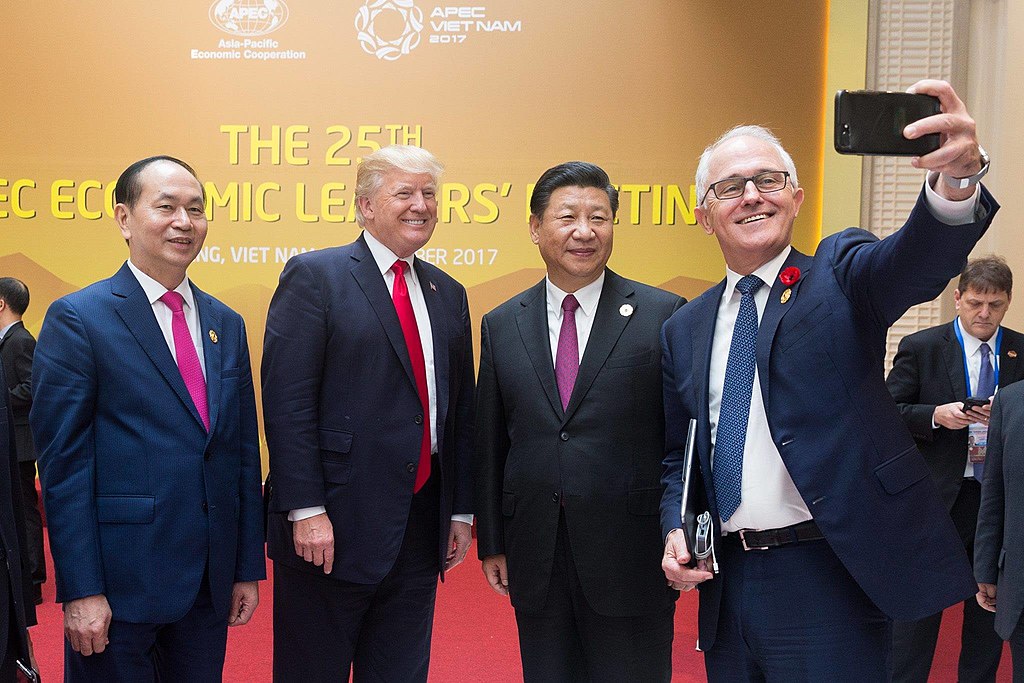
 China Awards Putin First Medal of Friendship
China Awards Putin First Medal of FriendshipRussian President Vladimir Putin arrived in China Friday morning on his third visit to China this year, signalling increasingly close ties between the two superpowers. Ahead of the Shanghai Cooperation Organisation summit in Qingdao this weekend, Putin travelled to Beijing for talks with President Xi.
On Friday, Xi awarded the Russian president China's first ever medal of friendship, referring to Russia-China ties as the "most significant relationship between major countries in the world." However, both leaders have indicated that their ties go beyond the professional. Putin, describing his close personal friendship with the Chinese president, said, "cooperation with China is one of Russia's top priorities." President Xi said of Putin that "he is my best, most intimate friend."
Why are the two leaders making public declarations of friendship? A statement they both signed Friday may provide the answer. "In conditions of a growing global instability and uncertainty," the statement reads, Russia and China will "deepen their consultations on strategic stability issues." Isolated from the G7— despite President Trump's calls to readmit Russia to the group— Putin may be seeking to bring a strong power into Russia's corner. China is also facing international criticism over its moves in the South China Sea, including it first test-landing of long-range bombers on an island in the disputed region, as we noted in last week's China This Week.
Richard Weitz of the Hudson Institute analyzed this growing relationship in the context of defense relations and arms sales this week. "The Chinese and Russian statements and commentary suggest that the two governments have embraced the logic of the recent U.S. national security documents, which see a revival of great power competition between the three governments as the dominant axis of international affairs," he argues.
 Chinese Students Sit "World's Hardest Exam"
Chinese Students Sit "World's Hardest Exam"Do you think you could ace a grueling multi-day exam on philosophy, mathematics, politics and essay writing that could make or break your future? This week, 9.75 million high school students across China sat the infamous national college entrance exam, called the "gaokao." China Daily calls it "one of the world's hardest exams." A student's score determines the universities they will be able to attend and therefore potentially their future career prospects. Indicating how serious the outcome, the Chinese authorities enforce a quiet test environment by banning the use of car horns, shutting down some building sites and factories, closing roads and policing test areas.
This year, as Quartz reports, the majority of the test questions put to students were politically-oriented, testing a student's proficiency in the philosophies, statements and policies of President Xi Jinping and the Chinese Communist Party. Five of the nine essay questions asked across China— there are some regional variations— were directly related to terms put forward by President Xi, such as the "new era."
The paper given to students sitting the exam in Beijing asked: "After 18 years, China has seen great development, while you have grown up. Please write an essay with the topic of "new youth in a new era, growing up with China's development." Another paper, given to students in a number of provinces, including Sichuan, Yunnan and Guizhou, asked students to write an article about China's reform and opening up process based on several political slogans. One of these was a slogan for President Xi's urban development project, the Xiong'an New Area: "Succeed in the Long March of our generation."
Want to try your hand at the test? Sixth Tone and CNN have online, multiple choice versions.
 ZTE Reaches a Deal
ZTE Reaches a DealChinese telecom company ZTE may soon be back in business. On Thursday, U.S. Commerce Secretary Wilbur Ross announced that the U.S. government had reached a deal with the company to lift its ban on purchasing U.S. technology, which caused the company to suspend all its major operations in early May. Under the new deal, ZTE will "reopen with a change of management and board, a $1.3 billion penalty, and a promise to purchase U.S. parts," as China-US Focus contributor Patrick Mendis notes in an article this week. In a memo to the company's staff Friday, ZTE's chairman, Yin Yimin, blamed the incident on problems with the firm's "compliance culture" and mistakes "at management level."
It appears, however, that the U.S. government's decision to give ZTE a lifeline was not unanimous. On Thursday, a bipartisan group of U.S. senators introduced legislation that would reverse President Trump's ZTE deal and restore penalties on the company for violating export controls. If passed, the measure would also bar U.S. government agencies from purchasing or leasing equipment or services from ZTE or Huawei, another Chinese phone-maker. It was introduced by two Democrats, Senator Chuck Schumer and Senator Chris Van Hollen, and a Republican— and Trump ally— Senator Tom Cotton. The legislation was proposed as an amendment to the National Defense Authorization Act, a defense bill that Congress passes each year. The Senate is expected to debate this legislation next week.
 This Week's Top Commentary
This Week's Top CommentaryWith the 40th anniversary of diplomatic relations between the United States and China approaching, An Gang, a senior fellow at the Pangoal Institution, analyzes a 40-year relationship marked by "competition and change" in a commentary for China-US Focus this week. "The age of China humbly learning from the U.S. has come to an end as has that of the U.S. allowing China to learn from it at a low cost."
"Under the media's magnifying lens, the psychological impact from the two countries' engagements on the South China Sea and trade issues is more pronounced than ever. As such, supporting and maintaining China-U.S. cooperation is transforming from being politically correct to being politically incorrect," he argues. "But does that necessarily mean a 'new Cold War'? Will friction and conflicts overpower dialogue and coordination? The question must be answered but we must not rush to conclusions." Read the full article here.
Prepared by China-US Focus editorial teams in Hong Kong and New York, this weekly newsletter offers you snap shots of latest trends and developments emerging from China every week, while adding a dose of historical perspective.
- 2018-06-01 USPACOM Rebranded As U.S. Indo-Pacific Command
- 2018-05-25 Trump Cancels North Korea Meeting
- 2018-05-18 The On/Off Trump-Kim Summit
- 2018-05-11 American Goods Are Stuck at Chinese Ports
- 2018-05-04 China and the U.S. Lay Trade Demands on the Table
- 2018-04-27 U.S. Delegation Will Visit China Next Week
- 2018-04-20 China and the U.S. Seek Allies in Trade Dispute
- 2018-04-13 President Xi Reviews the PLA Navy
- 2018-04-06 China and Russia Pledge Military Cooperation in a Signal to the United States
- 2018-03-30 Kim Jong Un Visits Beijing on First Overseas Visit
- 2018-03-23 President Trump Asks for Tariffs on Around $50 Billion Worth of Chinese Imports
- 2018-03-16 Tillerson to be Replaced by Mike Pompeo as Secretary of State
- 2018-03-09 President Trump Agrees to Meet Kim Jong-Un
- 2018-03-02 U.S. Imposes Tariffs on Chinese Aluminum
- 2018-02-23 A Week of Developments Related to North Korea
- 2018-02-16 Cui Tiankai says U.S. Should Not Advocate Confrontational Strategy Towards China
- 2018-02-09 China Releases the “No.1 Central Document” Containing New Rural Policies
- 2018-02-02 Wang Qishan Appointed to the National Legislature
- 2018-01-26 New Edition of the Focus Digest
- 2018-01-19 South Korea and North Korea to Compete Together at the Winter Olympics